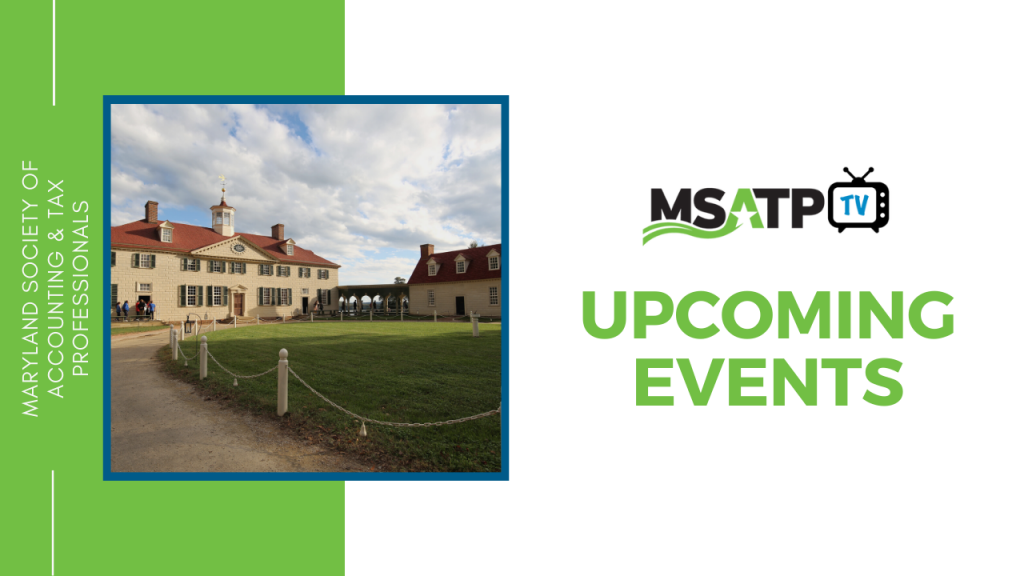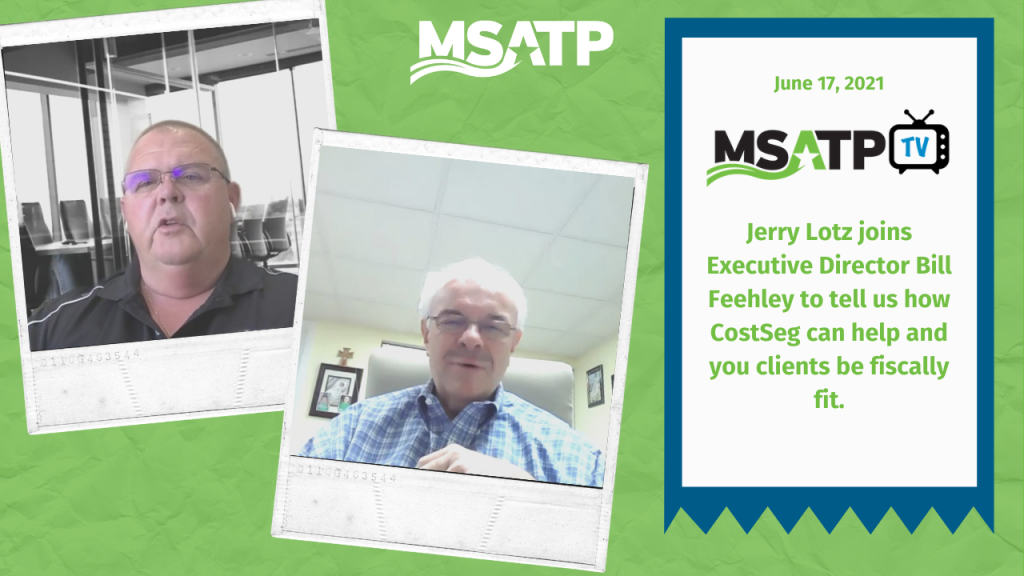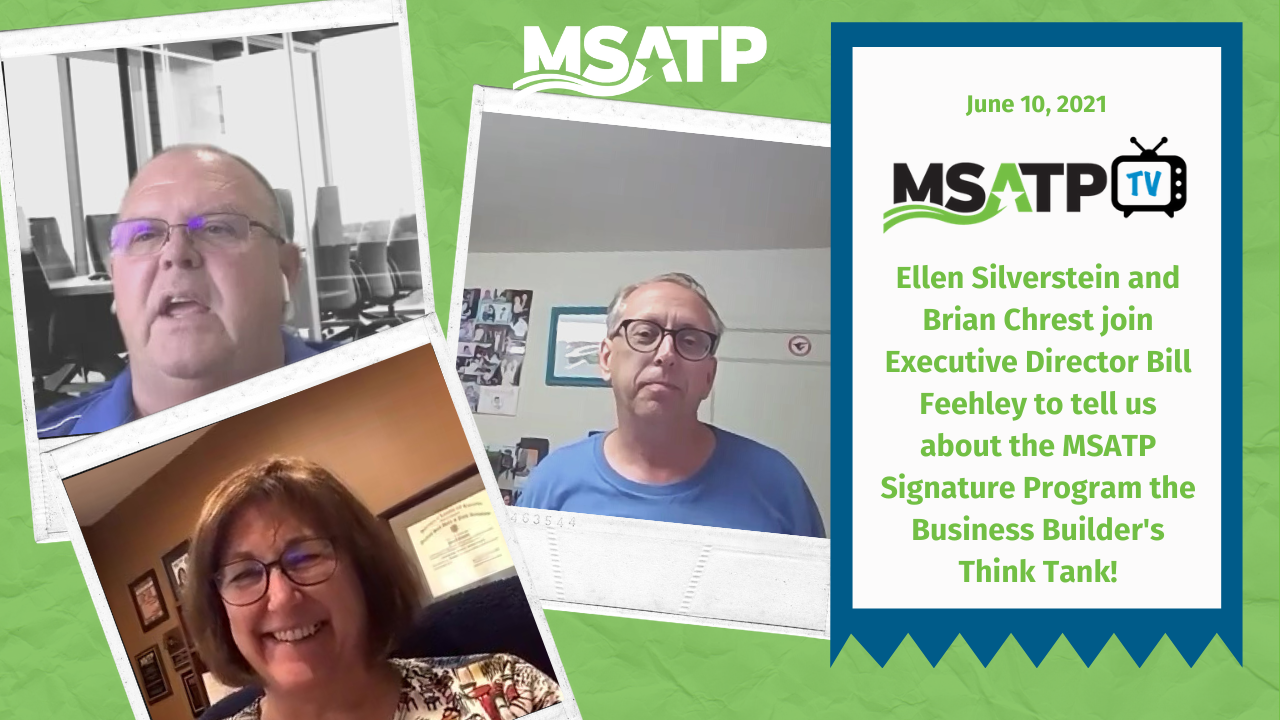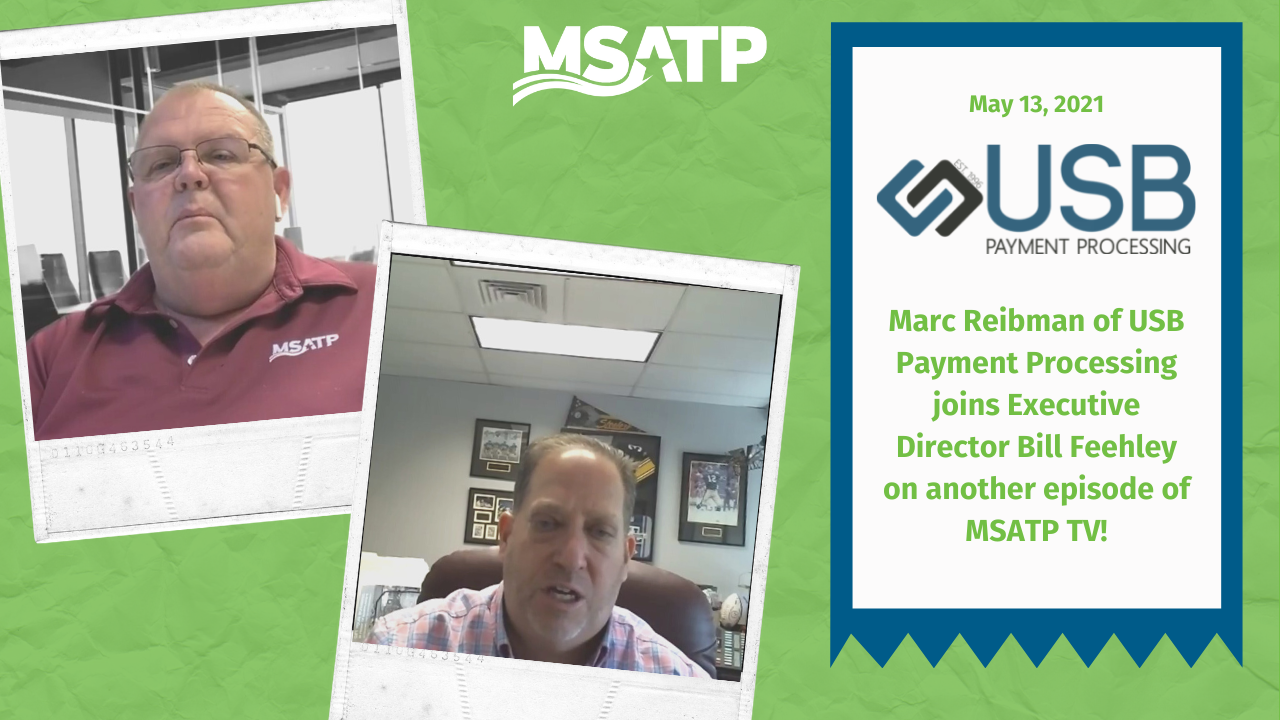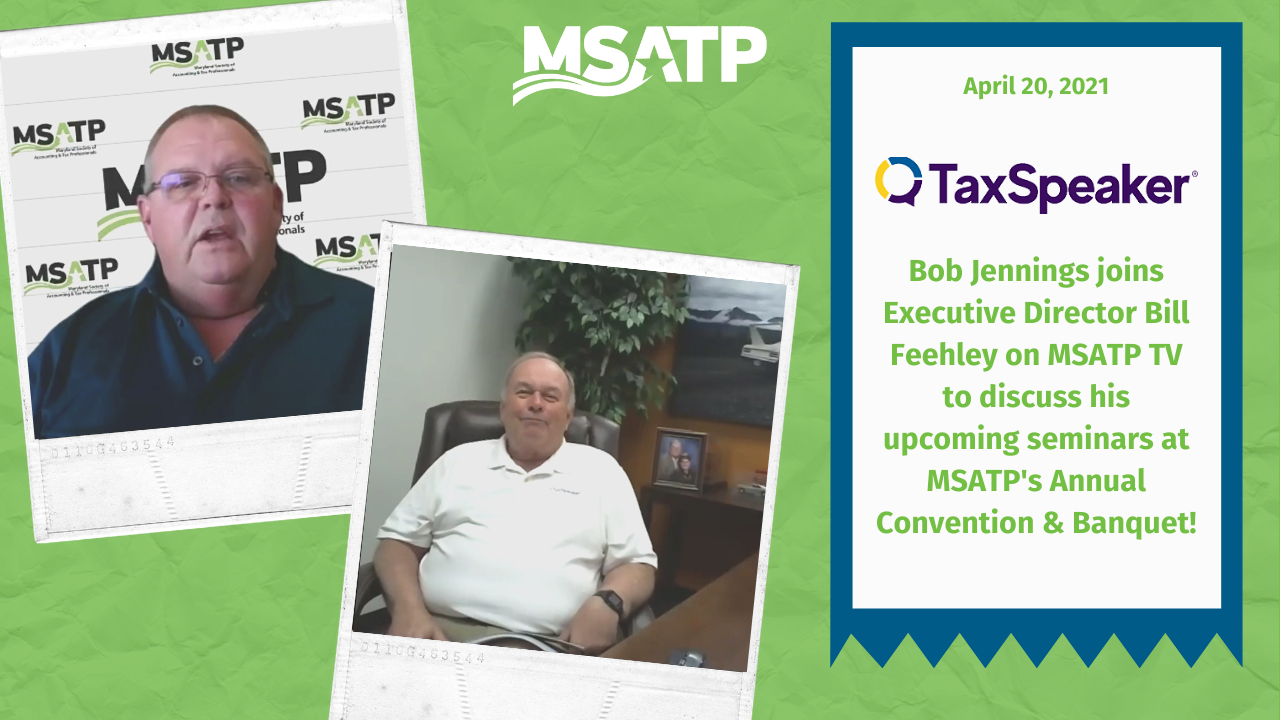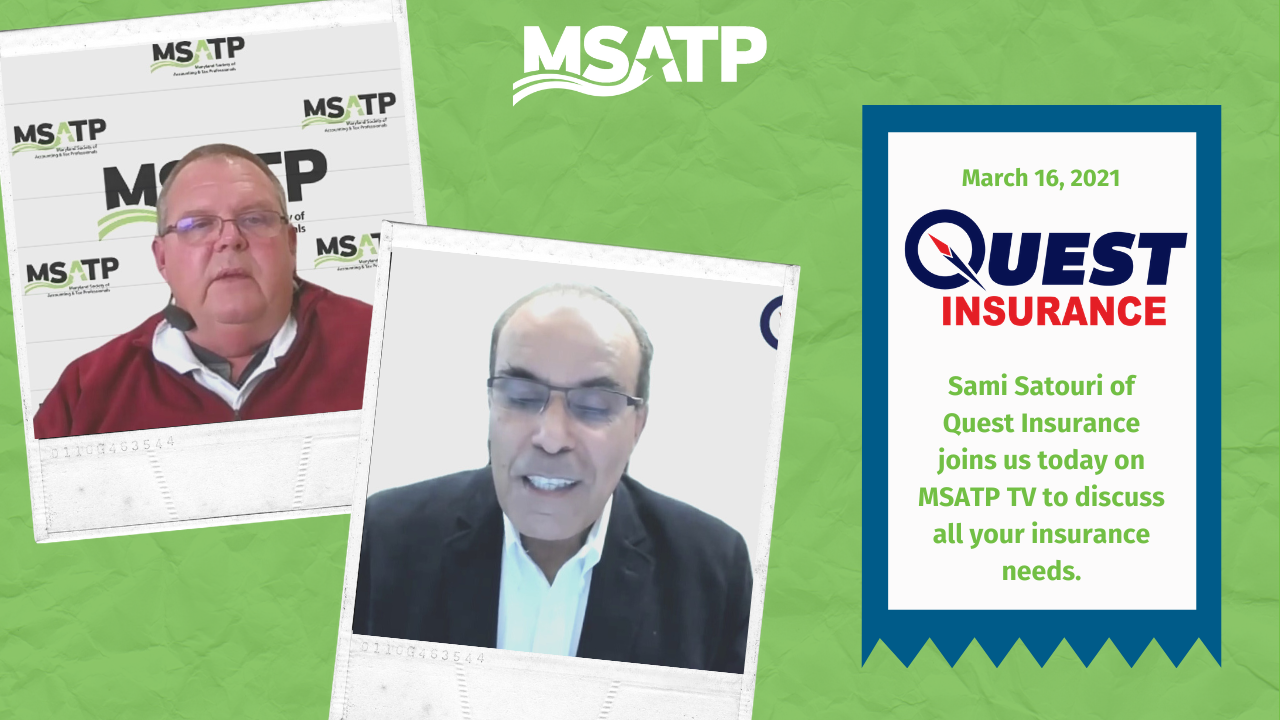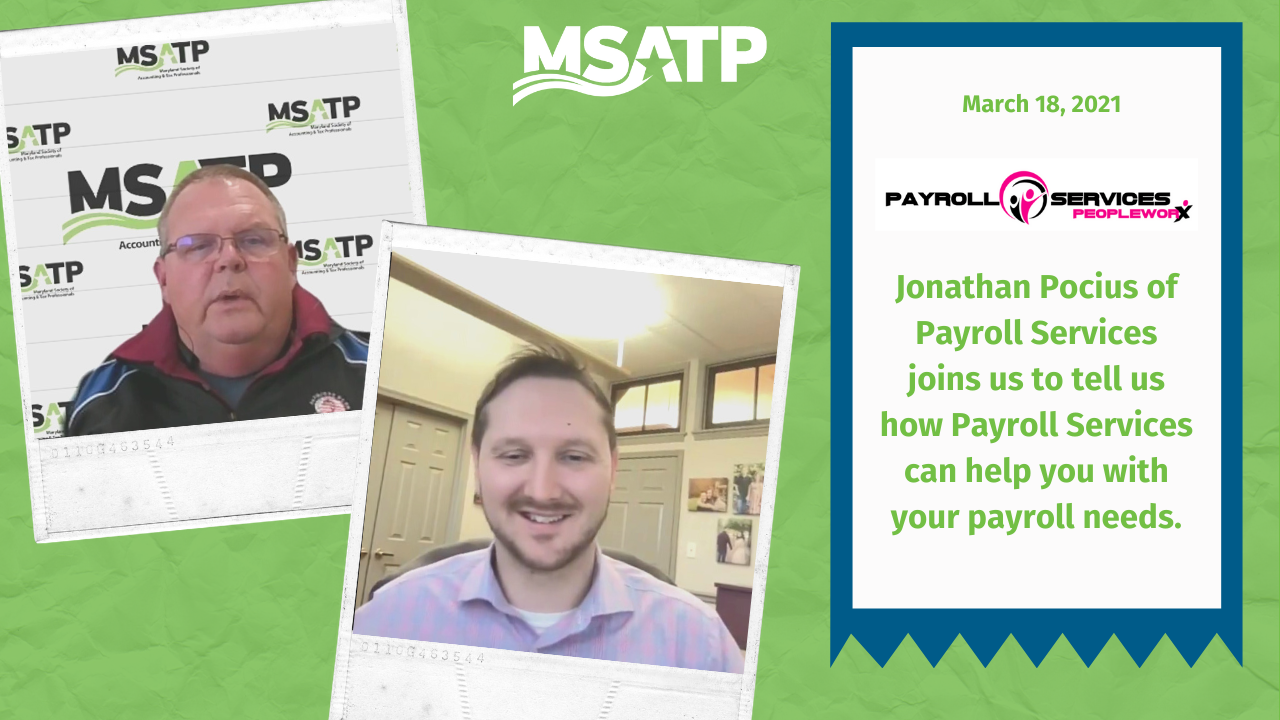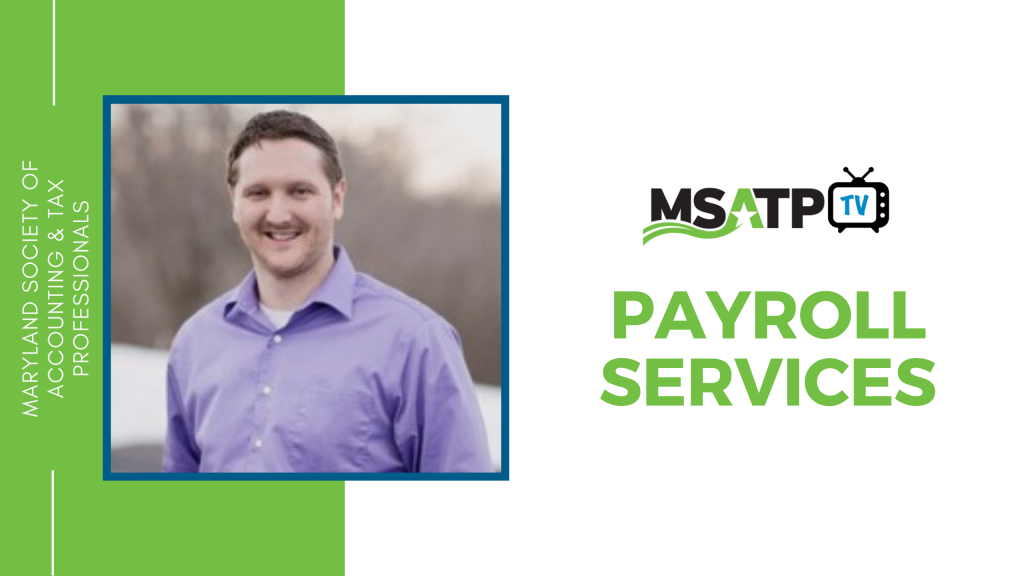
Jonathan Pocius of Payroll Services joins Bill Feehley to talk about how Payroll Services, LLC can help you with your payroll needs, including claiming your employee retention credits.
Watch on YouTube.
Coming Up: On Thursday, July 7 at 10 a.m., Ellen Silverstein and Robert Medbery will join Executive Director Bill Feehley to tell us about our upcoming signature events!
Be sure to Like/Follow us on Facebook so you can catch MSATP TV live every week!
Comptroller Extends Filing, Payment Deadlines for Pass-Through Entities | Two New Laws Caused Extensive Changes to Tax Forms; Waiver of Interest and Penalty for Returns Filed by Sept. 15
Comptroller Peter Franchot extended the filing deadline for 2020 income tax returns from Pass-Through Entities (PTEs) to Sept. 15, 2021, due to new laws requiring extensive changes to PTE tax forms that can now be accessed on the Comptroller’s website.
PTE forms are expected to be available through software vendors soon, but the Comptroller’s Office cannot guarantee the date of availability of forms through any third-party vendor.
Taxpayers who file PTE returns and pay any outstanding liabilities by September 15 will not be charged interest or pay a penalty. No further action is required for PTEs to receive this waiver; it will be automatically granted.
For more information, click here.
SDAT Eliminates Burdensome Business Fees, Observes Growth in Maryland Entrepreneurship
The Maryland State Department of Assessments and Taxation (SDAT) announced that as of July 1, businesses will no longer be required to pay a $100 filing fee to close their business. The Department has been pursuing this fee elimination since 2017, and this year led a bipartisan effort to pass HB0647, which was signed into law by Governor Hogan.
“Thanks to Governor Hogan’s leadership and support during the COVID-19 pandemic, Maryland’s business community is stronger than ever, with more businesses registering in 2020 than any year prior,” said SDAT Director Michael Higgs. “For businesses that unfortunately need to close, SDAT is proud to have led the effort on this bi-partisan legislation that assists business owners in that process by removing the dissolution fee.”
For more information, click here.
National Taxpayer Advocate Assesses Tax Filing Season and Identifies Areas for IRS Improvement in Mid-Year Report to Congress | IR-2021-139
National Taxpayer Advocate Erin M. Collins today released her statutorily mandated mid-year report to Congress. The report presents an assessment of the 2021 filing season, identifies key objectives the Taxpayer Advocate Service (TAS) will pursue during the upcoming fiscal year, and contains the IRS’s responses to each of the 73 administrative recommendations the Advocate made in her 2020 Annual Report to Congress.
The Advocate’s report emphasizes that the difficulties the IRS faced in performing its traditional work due to the COVID-19 pandemic and the added responsibilities it was assigned to make three rounds of stimulus payments combined to create significant challenges for taxpayers.
For more information, please click here.
Revenue Procedure 2021-14 | RP-2021-14
Revenue Procedure 2021-14 provides guidance regarding elections and revocations related to § 2303(e) of the Coronavirus Aid, Relief, and Economic Security Act (CARES Act). Section 2303(e) of the CARES Act provides special rules for taxpayers with a net operating loss (NOL) for any taxable year beginning in 2018, 2019, or 2020, all or a portion of which consists of a “farming loss,” as defined by § 172(b)(1)(B)(ii) of the Internal Revenue Code (Code) (Farming Loss NOL).
Revenue Procedure 2021-14 will be in IRB: 2021-29, dated July 19, 2021.
For more information, please click here.
IRS: Families Receiving Monthly Child Tax Credit Payments Can Now Update Their Direct Deposit Information | IR-2021-143
The Internal Revenue Service upgraded a key online tool to enable families to quickly and easily update their bank account information so they can receive their monthly Child Tax Credit payment.
The bank account update feature was added to the Child Tax Credit Update Portal, available only on IRS.gov. Any updates made by Aug. 2 will apply to the Aug. 13 payment and all subsequent monthly payments for the rest of 2021.
For more information, please click here.
IRS Extends Tax Relief For Employer Leave-Based Donation Programs that Aid Victims of the COVID-19 Pandemic | IR-2021-142
The Internal Revenue Service extended the tax relief provided in Notice 2020-46 for calendar year 2021 for employers whose employees forgo sick, vacation or personal leave because of the COVID-19 pandemic.
Notice 2021-42 provides that cash payments employers make to charitable organizations that provide relief to victims of the COVID-19 pandemic in exchange for sick, vacation or personal leave which their employees forgo will not be treated as compensation. Similarly, the employees will not be treated as receiving the value of the leave as income and cannot claim a deduction for the leave that they donated to their employer.
For more information, please click here.
Draft Instructions for the Schedules K-2 and K-3 Released to Enhance Reporting of International Tax Matters By Pass-Through Entities | IR-2021-140
The Treasury and the IRS released today early draft instructions for the Schedules K-2 and K-3 for Forms 1065, 1120-S, and 8865 for tax year 2021 (filing season 2022). The early release drafts of the instructions provide a preview of the instructions before final versions are released. The new Schedules K-2 and K-3 were released on June 3 and 4, 2021.
The redesigned forms and instructions give useful guidance to partnerships, S corporations and U.S persons who are required to file Form 8865 with respect to controlled foreign partnerships on how to provide international tax information. The updated forms apply to any persons required to file Form 1065, 1120-S or 8865, but only if the entity for which the form is being filed has items of international tax relevance (generally foreign activities or foreign partners).
For more information, please click here.
Here’s What Taxpayers Need to Know About Paying Taxes on Their Hobby Activities | Tax Tip 2021-94
Many people are engaged in hobby activities that are also a source of income. For example, some people started selling handmade items during the pandemic. These people must report this income on their tax return.
A hobby is any activity that a person pursues because they enjoy it and with no intention of making a profit. This differs from those that perate a business with the intention of making a profit.
For more information, please click here.
Virginia Society Launches Career Center for Accountants | Accounting Today
The Virginia Society of CPAs has launched a new Career Center for firms seeking top talent, as well as for individuals pursuing career opportunities in accounting and finance.
The VSCPA Career Center offers job postings, résumé review services, and other career and talent management resources. The new site is part of the VSCPA’s career services strategy to connect CPAs with future-oriented resources to drive innovation in workplace trends, talent and leadership development. The center is powered by YM Careers, a job board software platform.
For more information, please click here.
IRS Announces “Dirty Dozen” Tax Scams for 2021 | IR-2021-135
The Internal Revenue Service began its “Dirty Dozen” list for 2021 with a warning for taxpayers, tax professionals and financial institutions to be on the lookout for these 12 nefarious schemes and scams.
This year’s “Dirty Dozen” will be separated into four separate categories: pandemic-related scams like Economic Impact Payment theft; personal information cons including phishing, ransomware and phone ‘vishing’; ruses focusing on unsuspecting victims like fake charities and senior/immigrant fraud; and schemes that persuade taxpayers into unscrupulous actions such as Offer In Compromise mills and syndicated conservation easements.
The agency compiled the list into these categories based on who perpetuates the schemes and who they impact. In addition to today’s scams the IRS will highlight the other schemes over the next three days.
For more information, please click here.
Errors Employers Should Avoid When Requesting Advance Payment of Employer Credits | COVID Tax Tip 2021-93
Employers who are filing Form 7200, Advance Payment of Employer Credits Due to COVID-19 should read the instructions carefully and take their time when completing this form to avoid mistakes.
Using a reputable tax preparer – including certified public accountants, enrolled agents or other knowledgeable tax professionals – can also help avoid errors. Mistakes can result in a processing delay, which means it may take longer to get the advanced payment.
For more information, please click here.
“A Closer Look” at Employee Tax Initiatives: Helping Small Business and Self-Employed Taxpayers| CL-2021-19
Today, the IRS published the latest executive column “A Closer Look,” which features Scott Irick, Director of Examination discussing how the IRS has a variety of compliance programs and outreach efforts to help employers meet their employment tax responsibilities. “The tax law can be complex for these taxpayers, and part of my role as director is to use a variety of tools to help people understand and meet their tax obligations,” said Irick.
“A Closer Look” is a column from IRS executives that covers a variety of timely issues of interest to taxpayers and the tax community. It also provides a detailed look at key issues affecting everything from IRS operations and employees to issues involving taxpayers and tax professionals.
For more information, please click here.
